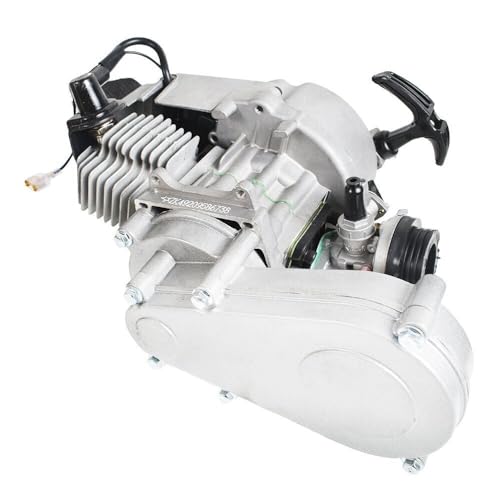Another thread which reckons they last 1-2 hours modded with the V-2 heads etc
178 SCUT on YX150 - Planet Minis
IF it's any consolation ...... Jap Hondas ALSO cop crank , kick starter , and tranny problems when highly modified .......
XR100 high HP crank & trans shaft breakage. Clutch. Dynos in So CA? - ThumperTalk
Most of the problems are created by people modding what's well known to drag racers and race engine builders as "Green" engines ..... For instance , THEY will not modify a brand new engine because they KNOW that the parts have not been heat treated and stress relieved and that they'll move around and change shape a lot until they settle over time .... Instead they'll start off with a Chev block that's done 100,000 easy miles in a truck .... that way they know that the engine hasn't been stressed by high revs or had any blow ups and the parts have been methodically heated and cooled and are now tougher and will hold their shape .... plus the fact that the engine is still running tells them that a lot of unknown factors are right with that particular engine ..... People don't see the countless new engines that went back to the dealers with warranty problems ... it's all hidden very well from the general public ....
IF you are going to build a "race" engine , you'd better have a really good understanding of all the factors involved .... Outright race engine parts are heat treated and stress relieved to work and survive from new .... Race engines are also precision machined and balanced to survive high rpm use .... even so .... NASCAR type engines that are held at sustained high revs live a very , very short life even with the BEST of components ..... It's not uncommon to find stress cracks all over the place in them after only a few big races .......
People modifying their own engines from stock are merely encountering all of the factors that are well known by race engineers ..... and they must be sitting back having a good old laugh at the "race" modifiers on pit bike and motorcycle forums ...
Modified or even raced new motors are like taking a pick from a lucky dip ...... some may strike it lucky with a good one and suck sweet sherbert ...... while countless others will bite the dust and suck rotten eggs .....
The main thing is that you have fun trying .... and don't dwell on the bitter taste in your mouth if you fail

Here's another link on automotive physics that may be of help to the people who advance the timing of their IRK's in order to get better power up top ...
They are damaging their engines and don't even realise it ....... The ONLY way to do it safely is to fit a fully programmable digital ignition .... and use something to check the advance at ALL revs right throughout the entire rev range ....... it only takes over advance at one point to do damage ...... This guy explains it really well ...
Physics In an Automotive Engine




